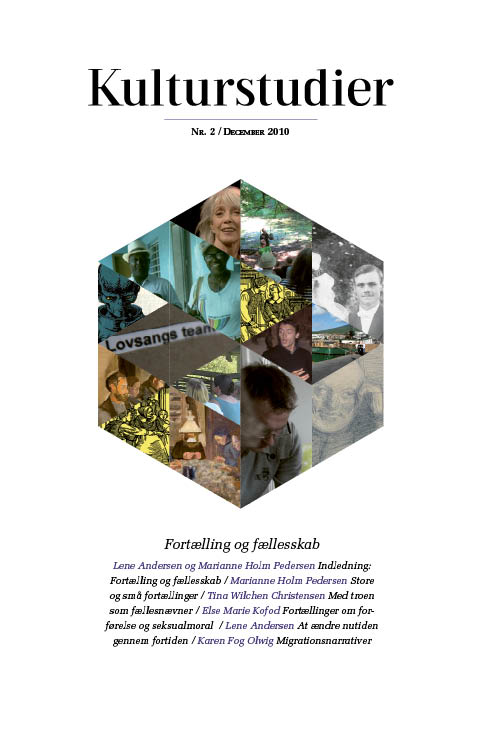Store og små fortællinger: Ritual og fællesskab blandt irakiske kvinder i København
DOI:
https://doi.org/10.7146/ks.v1i2.3898Nøgleord:
ritual, fællesskab, fortælling, indvandring, integration, familieResumé
Inden for den antropologiske migrationsforskning har studier af fællesskab primært beskæftiget sig med fællesskaber relateret til migranternes nationale, religiøse eller politiske identiteter. Det er dog vigtigt også at inddrage de konkrete, sociale relationer, der opstår mellem migranterne det sted, hvor de bor. Denne artikel diskuterer, hvordan shia-muslimske irakiske kvinder i København igennemderes religiøse aktiviteter skaber forskellige former for fællesskab. Med udgangspunkt i en analyse af kalenderritualet muharram undersøger den, hvordan kvinderne i selve ritualet relaterer sig til religiøse og nationale fællesskaber, og hvorledes kvindernes øvrige sociale samvær kan lede til mere konkrete fællesskaber, der dog også har deres begrænsninger.
Great and Small Stories: Ritual and Community among Iraqi Women in Copenhagen
Anthropological research on migration has primarily studied the topic of community in relation to migrants' national, religious, or political identities. Yet, it is important to also explore the concrete, social relations that develop among imigrants at the place where they are currently living. This article investigates how Shia Muslim Iraqi women in Copenhagen use religious rituals and stories to construct different kinds of community. Based on an analysis of the calendrical rite of Muharram, it examines the ways in which the women through the ritualrelate to abstract communities drawing on their religious and national identities. It also explores how women's other social interactions may lead to more concretecommunities that are based on shared presence, activities, and the exchange of gossip and personal stories. The religious milieu gains its importance because women can negotiate their sense of belonging in relation to both their socio-culturalbackground and their everyday lives as part of an ethnic minority in Denmark. Nevertheless, the sense of community constructed among women does not necessarily extend outside of the religious activities. The article argues that it is necessary to thoroughly examine the sometimes contingent forms of community and belonging constructed among ethnic minorities rather than taking for granted that such communities exist on the basis of people's shared point of origin.
Downloads
Publiceret
Citation/Eksport
Nummer
Sektion
Licens
Tidsskriftet forbeholder sig ret til førsteudgivelsen, mens ophavsretten til artiklen tilfalder forfatteren.
Artikler udgivet af Kulturstudier licenseret under en Creative Commons Navngivelse-IkkeKommerciel-IngenBearbejdelse 4.0 International Licens





